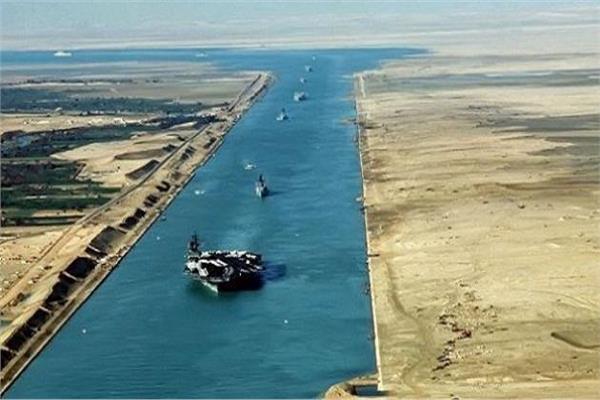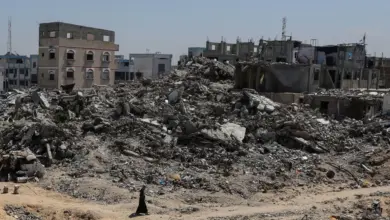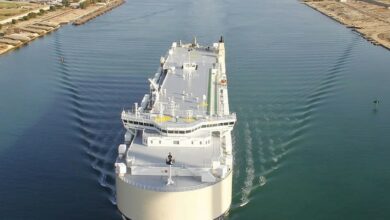Sixty years ago, when military elites, namely the Free Officers, ruled Egypt, they learned several amazing tricks from the former Soviet Union. One of these was how to build factories and pay meager wages to their workers.
Years rolled by and the former USSR perished; yet Egypt’s military remained loyal to its old managerial habits, it seems. The past two weeks have seen a fresh spate of labor strikes, of which the common denominator has been the presence of some retired military officers in the background.
These protests were primarily staged at military factories and the Suez Canal Authority’s companies and ports, where military officers dominate the top positions. It is worth noting that according to Sayed Meshaal, the former military production minister, 40 percent of the military industrial complex’s production is of profit-generating consumer goods, rather than weaponry, as would be assumed.
The scene of labor protests has revealed a stark truth to which we have been oblivious: The largest labor strikes staged throughout the year that followed the revolution were, in fact, organized against army generals who permeate positions of power in Egypt’s industrial sector. These strikes were staged at economic institutions owned by the military or civil institutions run by military generals.
The military has accused the striking workers of stalling the “wheel of production.” But as it turns out today, the protesters were doing more harm to the military than they were to the country’s economy. However, we need to go back to Joseph Stalin in order to shed more light on Egypt’s military industrial complex.
Joseph Stalin was known for his thick moustache, which remains unmatched by modern-time leaders. Stalin’s aggressive, bloody policies mirrored the hostility of his appearance. To achieve quick industrialization, Stalin’s regime mobilized millions to work at obligatory camps in return for negligible compensation. Whoever disobeyed the regime was exiled, imprisoned or immediately executed. His era was described as the time of Great Terror.
In the 1950s and 60s Egypt adopted the Soviet economic pattern. For the sake of the state’s rhetoric on “patriotism and independence from colonialism,” Egyptian labor power withstood poverty and suppression of their rights. While ordinary Egyptians were supposed to be happy with the scant wages they received and the lack of democratic rights, for the goal of building an independent nation, the wealth of army generals who had their grip on the economy was growing fast.
Several of the military leaders who are currently in power belong to that era. It seems that some of them are inspired by Stalin and draw on his legacy of suppression.
Like I said before, most of the strikes and sit-ins that were staged by tens of thousands of workers after the breakout of the 25 January revolution were chiefly staged against army generals in several positions of power across the country. Let us take a look at some of the most important examples in the past 14 months.
The military appointed themselves to senior positions in several civil sectors generating substantial revenues, such as petroleum, marine ports and the Suez Canal companies and ports. These sectors have seen continuing protests against low salaries and corruption.
In February 2011, some 2,000 workers and engineers in the petroleum sector protested their poor conditions, as well as the increasing militarization of jobs in the sector. While the retired army generals at the top were receiving thousands of pounds, the workers were earning very little. The following month, thousands of workers in the same sector joined the protests, this time from companies like Petrojet and Petrotrade. The military’s response was aggressive; it abducted some of the protesters, put them on military trials and sent them to prison. Defying the military’s sway, the workers renewed their protests in front of the People’s Assembly a few weeks ago, perhaps in the hope that Parliament would back their demands.
If we take a closer look at the Suez Canal Authority, the focal point of many workers’ protests, we will realize that it is headed by Lieutenant General Ahmed Fadel and almost every one of its companies and ports on the Red Sea is run by retired generals. Suez Canal workers recently staged a series of protests against unjust treatment. In one of the protests, the workers blocked the train railway. In reaction, the Suez Canal Authority referred some of the workers to military prosecution and imprisoned others to intimidate the rest; but it seems that the penalties have not been deterrent enough.
One of the earliest protests was the one staged by workers at the Arab Organization for Industrialization, which is headed by Major General Hamdy Waheeba. In February 2011, approximately 1,500 workers from the authority staged a protest to call for better pay. When their demands were disregarded, they renewed their protests in August and the remaining 16,000 workers of the organization joined them. The following month, the labor leaders who called for reform at the authority were suspended.
Tens of thousands of workers at military factories also staged protests. The workers at factories 9, 63 and 200 went on strike last year. Last week, 5,000 workers at factories 45 and 99 staged protests and were joined by protesters from the Muhemmat Factory in Gharbiya. Invariably, the workers complain about low salaries and administrative corruption.
If history is to be instructive, it’s worth noting here that even though Stalin continued to manage by instilling fear in his people for over thirty years, his policies were criminalized as soon as he died; his name was removed from state institutions and workers finally attained their rights.
Zeinab Abul-Magd is a historian. She teaches at the American University in Cairo.
Translated from Al-Masry Al-Youm by Dina Zafer.




